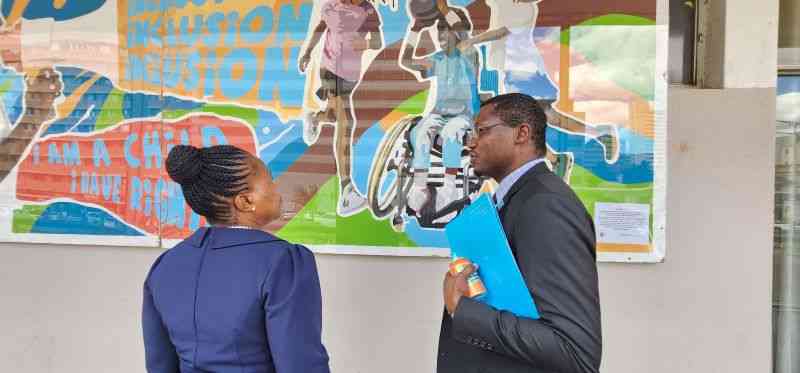
UNITED Nations Children’s Fund (Unicef) has said participation in social activities including the arts plays a pivotal role in promoting a positive view of disability and breaking down societal prejudices.
Unicef outgoing resident representative Tajudeen Oyewale said this at a handover ceremony of the Inclusion painting to the National Gallery of Zimbabwe in Harare.
Before the official handover, the mural was unveiled during the 2022 World Children’s Day commemorations.
“Access to participation in community activities, education, culture and recreation is paramount for the development of children and these activities should be freely accessible to ensure their full participation including those with disabilities,” he said in a statement.
“By actively involving children with disabilities in shaping perceptions and policies, we can move closer to realising the promise of a truly inclusive society.”
Oyewale described the mural as a powerful call for an inclusive society whereby rights of all children including those with disabilities are respected and upheld.
He further noted that when societies embrace inclusive principles and provide equitable support, children with disabilities enjoy the same rights and opportunities as their peers.
“The mural was created following a series of consultations held across the country where children, including those with disabilities expressed their aspirations for a society where access to social services is adapted to cater to the needs of every citizen ensuring inclusivity for and equity for all,” he said.
- Gweje relishes fashion achievements
- Daily life struggles reflected in Burning Figure
- 'Film sector drives economic growth'
- My Beautiful Home contest over subscribed
Keep Reading
“The messages upheld by the mural are that children should be encouraged to express themselves and speak up on issues that affect them, children with disabilities are rights holders to the same extent as any other group of children and should therefore have all their rights respected as defined in the United (Nations) Convention on the Rights of the Child.”
Oyewale reiterated the significance of empowering young people to become change makers in their communities and nations.
“Through the acquisition of leadership, critical thinking and advocacy skills, young people can effectively advocate for the rights of marginalised and vulnerable children and adolescents.
“Harnessing the power of face-to-face interactions and digital platforms build empathy, foster dialogue and drive positive change for children worldwide,” he said.
Oyewale said Unicef was committed to working with young people to amplify their voices and support them in influencing decisions and policies.






